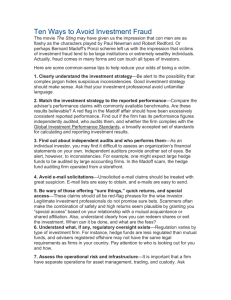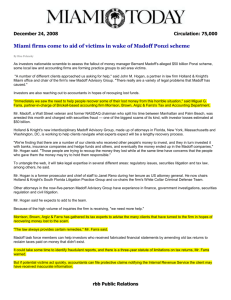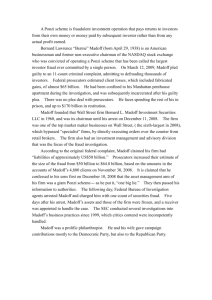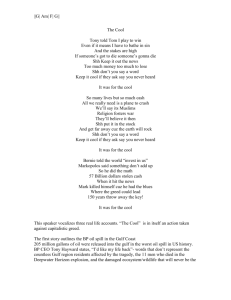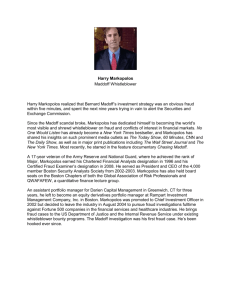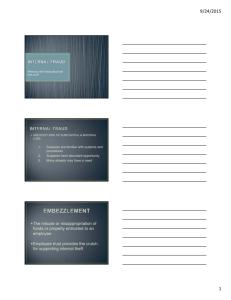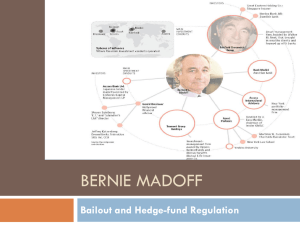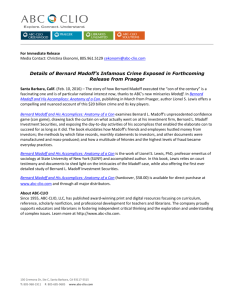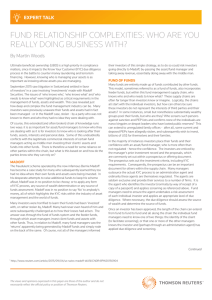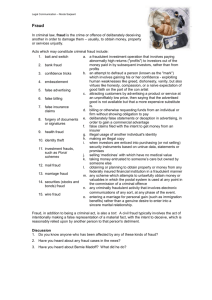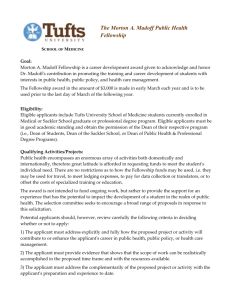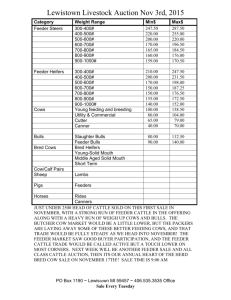Dear Clients and Friends, It was announced earlier today that the
advertisement
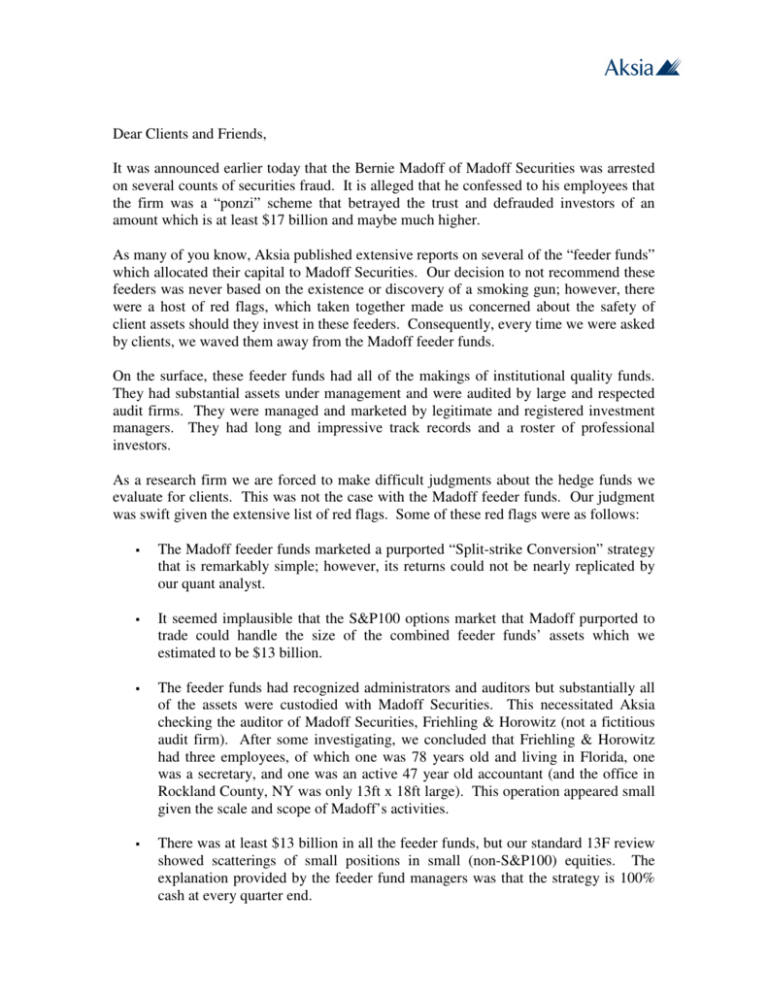
Dear Clients and Friends, It was announced earlier today that the Bernie Madoff of Madoff Securities was arrested on several counts of securities fraud. It is alleged that he confessed to his employees that the firm was a “ponzi” scheme that betrayed the trust and defrauded investors of an amount which is at least $17 billion and maybe much higher. As many of you know, Aksia published extensive reports on several of the “feeder funds” which allocated their capital to Madoff Securities. Our decision to not recommend these feeders was never based on the existence or discovery of a smoking gun; however, there were a host of red flags, which taken together made us concerned about the safety of client assets should they invest in these feeders. Consequently, every time we were asked by clients, we waved them away from the Madoff feeder funds. On the surface, these feeder funds had all of the makings of institutional quality funds. They had substantial assets under management and were audited by large and respected audit firms. They were managed and marketed by legitimate and registered investment managers. They had long and impressive track records and a roster of professional investors. As a research firm we are forced to make difficult judgments about the hedge funds we evaluate for clients. This was not the case with the Madoff feeder funds. Our judgment was swift given the extensive list of red flags. Some of these red flags were as follows: The Madoff feeder funds marketed a purported “Split-strike Conversion” strategy that is remarkably simple; however, its returns could not be nearly replicated by our quant analyst. It seemed implausible that the S&P100 options market that Madoff purported to trade could handle the size of the combined feeder funds’ assets which we estimated to be $13 billion. The feeder funds had recognized administrators and auditors but substantially all of the assets were custodied with Madoff Securities. This necessitated Aksia checking the auditor of Madoff Securities, Friehling & Horowitz (not a fictitious audit firm). After some investigating, we concluded that Friehling & Horowitz had three employees, of which one was 78 years old and living in Florida, one was a secretary, and one was an active 47 year old accountant (and the office in Rockland County, NY was only 13ft x 18ft large). This operation appeared small given the scale and scope of Madoff’s activities. There was at least $13 billion in all the feeder funds, but our standard 13F review showed scatterings of small positions in small (non-S&P100) equities. The explanation provided by the feeder fund managers was that the strategy is 100% cash at every quarter end. Madoff’s website claimed that the firm was technologically advanced (“the clearing and settlement process is rooted in advanced technology”) and the feeder managers claimed 100% transparency. But when we asked to see the transparency during our onsite visits, we were shown paper tickets that were sent via U.S. mail daily to the managers. The managers had no demonstrated electronic access to their funds accounts at Madoff. Paper copies provide a hedge fund manager with the end of the day ability to manufacture trade tickets that confirm the investment results. Conversations with former employees indicated a high degree of secrecy surrounding the trading of these feeder fund accounts. Key Madoff family members (brother, daughter, two sons) seemed to control all the key positions at the firm. Aksia is consistently negative on firms where key and control positions are held by family members. Madoff Securities, through discretionary brokerage agreements, initiated trades in the accounts, executed the trades, and custodied and administered the assets. This seemed to be a clear conflict of interest and a lack of segregation of duties is high on our list of red flags. We believe that much will be written about this story in the coming weeks and we are sure that your investment committees, chief investment officers and trustees will have questions about this story and the work we do for you to help protect your fund’s interest from such activity. As with the Madoff feeder funds and any other hedge funds, Aksia will continue to place strong emphasis on independently verifying the information we receive from managers. Basic steps of reference checks with market participants, verification of the role of third-party service providers, and financial statement review will continue to carry great weight in our recommendations despite the current investor focus on market losses. Our Operational Due Diligence team has backgrounds in audit, operations, risk management and fraud and investigations. Our investment teams have backgrounds in trading, portfolio management and hedge fund investing. Our exclusive focus hedge funds and this unique combination of skills provide a “360 degree” perspective on hedge funds as evidenced by the work performed on Madoff Securities. We have encouraged all of you to accompany our teams on site visits to familiarize yourself with the work that we do in operations and investment reviews. We are in an environment where the risks of investing go beyond market exposures and it is best that we all deepen our understanding of the complexities of these vehicles. Regards, Jim Vos CEO and Head of Research 212.710.5757 Jake Walthour Head of Advisory Services 212.710.5777
